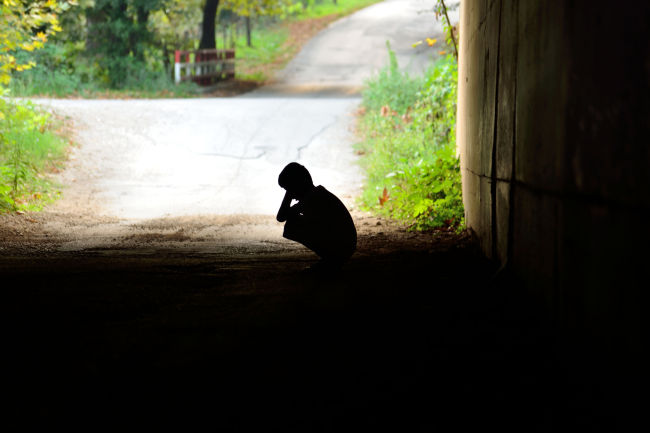The presidential office’s response to the release of a Social Weather Stations survey showing that 43 percent, or about 9.3 million Filipinos, considered themselves hungry, and 55 percent, or some 12.1 million Filipino families, thought themselves poor, was true to form.
The survey isn’t accurate, the palace said in so many words. Why, the National Economic and Development Authority and the Philippine Statistics Authority had declared that poverty in fact decreased in early 2013 to 24.9 percent, compared to 27.9 percent in the same first-semester period in 2012. Those were the same numbers President Benigno Aquino III had touted in his last State of the Nation Address in July.
And with that, his spokesperson Edwin Lacierda went on to say: “The consistent and focused poverty alleviation measures that the government has undertaken show a positive effect on the reduction of poverty.”
Never mind that the figures were old hat compared to the SWS survey, which was conducted only last Sept. 26-29. Note only the blithe attitude with which this administration greets the latest finding that a staggering number of Filipinos remain impoverished, unable to procure enough food for their families and otherwise provide for themselves in a decent way. Other governments would perhaps attempt at least the appearance of being solicitous to its hungry constituents in the face of such potentially explosive news, but this administration’s reaction is to paper over the reality with vacuous pronouncements made worse by cited data that is at least 2 years old.
 |
An underprivileged child squats at the entrance of a tunnel.(123RF) |
It’s not only Malacanang that plays dead in the face of horrendous poverty all around. The cream of the nation’s so-called leaders are gripped in an epic brawl to tear each other down in the run-up to yet another election that will, in all probability, put even more of their like in power once the dust has settled. Even as millions of Filipino families scrounge for sustenance every day, the Senate is in a virtual circus mode, regaling the public with breathless revelations of the vice president’s alleged fabulous wealth, while the rest of the political order is jockeying for choice spots in the fast-rearranging landscape now that the presumptive presidential frontrunner is about to get the wind knocked out of him.
It’s all very entertaining and, of course, watching grubby politicians engage in mutual destruction can only be beneficial to a country long weary of them. But the spectacle might also be doing these politicians a favor ― it distracts from the scandalous social conditions that have gone unaddressed and that the political elite has had an active hand in creating and enabling.
That is why Sen. Grace Poe’s recent privilege speech calling on the government to redirect its focus to immediately addressing rampant hunger and poverty is more than a blast of fresh air in the toxic and turgid political environment; it should shame her colleagues into opening their eyes to what is really important and urgent at this point.
The statistics Poe cited are grim: Some 87 percent of households are so bereft of proper food that they resort to food “alternatives” such as soy sauce, bagoong, tomato, salt and coffee. About 7.36 million children below the age of 5 are malnourished. And 5.5 million out of 13.4 million poor children below 18 are forced to skip school and look for jobs to augment their families’ income.
Poe called for a realignment in budget priorities to increase funding for children’s feeding programs, and for greater institutional support for agriculture ― a sector long battered on two fronts by natural calamities and chronic governmental corruption ― to ensure the adequate supply of food. The national budget, she said, should “fill the empty stomachs of the young” rather than be “littered with frivolous programs we can do without.”
No saner, more sensible words have been said of late. The Aquino administration has less than two years to show the country that the economic improvement it says it has achieved by leaps and bounds will redound to the benefit of all. As early as now, it has said that by the time President Aquino’s term ends in 2016, the poverty rate would be at 18-20 percent, or down from the initial projection of 16.6 percent.
But 18-20 percent of 100 million people remaining hungry and impoverished is an outrage and a shame. There is no excuse for indifferent nonchalance here.
(Editorial Desk, Philippine Daily Inquirer)





![[Exclusive] Hyundai Mobis eyes closer ties with BYD](http://res.heraldm.com/phpwas/restmb_idxmake.php?idx=644&simg=/content/image/2024/11/25/20241125050044_0.jpg)
![[Herald Review] 'Gangnam B-Side' combines social realism with masterful suspense, performance](http://res.heraldm.com/phpwas/restmb_idxmake.php?idx=644&simg=/content/image/2024/11/25/20241125050072_0.jpg)

